Posted on February 21st, 2014 by Mary Lord
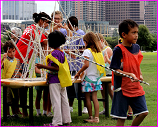 Developed by the Museum of Science, Boston, Engineering Everywhere is a free engineering curriculum full of hands-on design activities for middle-school-aged youth in after-school and camp programs.
Developed by the Museum of Science, Boston, Engineering Everywhere is a free engineering curriculum full of hands-on design activities for middle-school-aged youth in after-school and camp programs.
Read More
Filed under: Class Activities, Grades 6-8, Grades 6-8, Grades 6-8, K-12 Outreach Programs, Lesson Plans, Web Resources | Comments Off on Engineering Everywhere
Tags: After School, Boston Museum of Science, Curriculum, Engineering Everywhere, Engineering is Elementary, Environmental Engineering, process engineering, Resources for Teachers, STEM education
Posted on January 20th, 2014 by Mary Lord
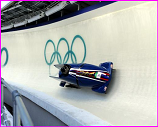 Teams of students in grades 3 to 8 learn about friction, forces, and the engineering design process by building and testing miniature bobsleds to see which can race down an icy slope either the fastest or slowest.
Teams of students in grades 3 to 8 learn about friction, forces, and the engineering design process by building and testing miniature bobsleds to see which can race down an icy slope either the fastest or slowest.
Read More
Filed under: Class Activities, Grades 6-8, Grades 6-8, Grades K-5, Grades K-5, Lesson Plans | Comments Off on Build a Bobsled Racer
Tags: Aerodynamics, Bobsled, Boston Museum of Science, Energy, Engineering Design Process, friction, glide, kinetic energy, Olympics
Posted on February 10th, 2011 by ASEE
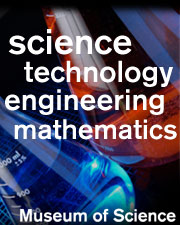 Engineering the Future® Online Course is a moderated four-week online course, March 7 and June 20, 2011, offered by Boston’s Museum of Science, and covering the same engineering education material as the three-day institute held at the museum. It is ideal for high school teachers from other regions, or for those who prefer to study online. Online participants perform hands-on activities, interacting with course content for about six hours per week. Additional time for designing and building projects is also required. Cost: $150.
Engineering the Future® Online Course is a moderated four-week online course, March 7 and June 20, 2011, offered by Boston’s Museum of Science, and covering the same engineering education material as the three-day institute held at the museum. It is ideal for high school teachers from other regions, or for those who prefer to study online. Online participants perform hands-on activities, interacting with course content for about six hours per week. Additional time for designing and building projects is also required. Cost: $150.
Read More
Filed under: For Teachers, K-12 Outreach Programs | 1 Comment »
Tags: Boston Museum of Science, Summer Programs (Teachers)
Posted on May 1st, 2010 by ASEE
 Engineering the Future® Three-Day Institutes is a concentrated, hands-on workshop offered by the Museum of Science, Boston, open to all teachers interested in expanding their knowledge of standards-based engineering design.Participants work through key activities in each of the course’s four projects, and have the opportunity to ask questions, practice what they’ve learned, and discuss concerns with course developers and experienced teachers. Cost: $350 ($400 after June 4). No new 2011 information available.
Engineering the Future® Three-Day Institutes is a concentrated, hands-on workshop offered by the Museum of Science, Boston, open to all teachers interested in expanding their knowledge of standards-based engineering design.Participants work through key activities in each of the course’s four projects, and have the opportunity to ask questions, practice what they’ve learned, and discuss concerns with course developers and experienced teachers. Cost: $350 ($400 after June 4). No new 2011 information available.
Read More
Filed under: For Teachers, K-12 Outreach Programs | Comments Off on Teachers’ Summer: Engineering Institute, Boston. June 23-25, 2010
Tags: Boston Museum of Science, Summer Camps & Programs (Students), Summer Programs (Teachers), Webinar
Posted on March 2nd, 2010 by ASEE
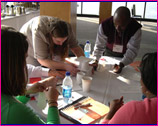 Teachers are invited to join the Everyone Engineers! Workshop being held at the Museum of Science, Boston, May 3-5, 2010. Teachers will learn how EiE curricular materials help meet engineering and technology standards, and will engage in hands-on activities with solar ovens and alarm circuits. Cost: $350 before and $400 after April 20. Registration deadline: April 26, 2010.
Teachers are invited to join the Everyone Engineers! Workshop being held at the Museum of Science, Boston, May 3-5, 2010. Teachers will learn how EiE curricular materials help meet engineering and technology standards, and will engage in hands-on activities with solar ovens and alarm circuits. Cost: $350 before and $400 after April 20. Registration deadline: April 26, 2010.
Read More
Filed under: For Teachers, K-12 Outreach Programs | Comments Off on Teachers Program: Engineering Workshop, Boston, May 3-5
Tags: Boston Museum of Science, Curriculum, Events, Programs for Teachers
Posted on February 22nd, 2010 by ASEE
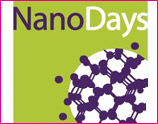 Boston’s Museum of Science joins NanoDays, the nationwide celebration of nanoscale science, from March 27 – April 3, inviting everyone to join in a week of nano-related activities week long, with several special events: jugglers, demonstrations, model building, and live presentations.
Boston’s Museum of Science joins NanoDays, the nationwide celebration of nanoscale science, from March 27 – April 3, inviting everyone to join in a week of nano-related activities week long, with several special events: jugglers, demonstrations, model building, and live presentations.
Read More
Filed under: Grades 6-8, Grades 9-12, Grades K-5, K-12 Outreach Programs | Comments Off on Event: NanoDays at Boston’s Museum of Science
Tags: Boston Museum of Science, Entertainment, Events, Grades 6-8, Grades 9-12, Grades K-5, Museums, Nanotechnology, Presentations
Posted on February 19th, 2010 by Jaimie Schock
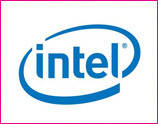 The 2010 Intel Schools of Distinction Awards program is open for applications. The National Center for Technological Literacy at the Museum of Science, Boston is a sponsor of this program, which recognizes K-12 U.S. schools demonstrating 21st century teaching and learning environments and implementing innovative programs that inspire their students to excel in the areas of math and science.
The 2010 Intel Schools of Distinction Awards program is open for applications. The National Center for Technological Literacy at the Museum of Science, Boston is a sponsor of this program, which recognizes K-12 U.S. schools demonstrating 21st century teaching and learning environments and implementing innovative programs that inspire their students to excel in the areas of math and science.
Read More
Filed under: Web Resources | Comments Off on 2010 Intel Schools of Distinction
Tags: Boston Museum of Science, Competitions for Teachers, Contest, Grant Opportunities, Scholarships and Fellowships, Teacher Awards, Web Resources
Posted on December 7th, 2009 by ASEE

Biology teachers are invited join Boston’s Museum of Science for a full-day symposium on current approaches to biotechnology education, March 29, 2010. Teachers interested in leadinga 90-minute session are encouraged to submit a proposal by January 15, 2010.
Read More
Filed under: For Teachers, K-12 Outreach Programs | Comments Off on Teacher Program: Biotech at Boston, March 29, 2010
Tags: Biotechnology, Boston Museum of Science, Professional Development, Teacher Training, Workshops
Posted on August 27th, 2009 by axb
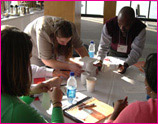 The Engineering is Elementary (EiE) project aims to foster engineering and technological literacy among children. EiE is creating a research-based, standards-driven, and classroom-tested curriculum that integrates engineering and technology concepts and skills with elementary science topics. EiE lessons not only promote K-12 science, technology, engineering, and mathematics (STEM) learning, but also connect with literacy and social studies.
The Engineering is Elementary (EiE) project aims to foster engineering and technological literacy among children. EiE is creating a research-based, standards-driven, and classroom-tested curriculum that integrates engineering and technology concepts and skills with elementary science topics. EiE lessons not only promote K-12 science, technology, engineering, and mathematics (STEM) learning, but also connect with literacy and social studies.
Read More
Filed under: Grades K-5, K-12 Outreach Programs, Web Resources | 1 Comment »
Tags: Boston Museum of Science, Curriculum, Museums, Science museum, Workshops
 Developed by the Museum of Science, Boston, Engineering Everywhere is a free engineering curriculum full of hands-on design activities for middle-school-aged youth in after-school and camp programs.
Developed by the Museum of Science, Boston, Engineering Everywhere is a free engineering curriculum full of hands-on design activities for middle-school-aged youth in after-school and camp programs.








 Teams of students in grades 3 to 8 learn about friction, forces, and the engineering design process by building and testing miniature bobsleds to see which can race down an icy slope either the fastest or slowest.
Teams of students in grades 3 to 8 learn about friction, forces, and the engineering design process by building and testing miniature bobsleds to see which can race down an icy slope either the fastest or slowest. Engineering the Future® Online Course is a moderated four-week online course, March 7 and June 20, 2011, offered by Boston’s Museum of Science, and covering the same engineering education material as the three-day institute held at the museum. It is ideal for high school teachers from other regions, or for those who prefer to study online. Online participants perform hands-on activities, interacting with course content for about six hours per week. Additional time for designing and building projects is also required. Cost: $150.
Engineering the Future® Online Course is a moderated four-week online course, March 7 and June 20, 2011, offered by Boston’s Museum of Science, and covering the same engineering education material as the three-day institute held at the museum. It is ideal for high school teachers from other regions, or for those who prefer to study online. Online participants perform hands-on activities, interacting with course content for about six hours per week. Additional time for designing and building projects is also required. Cost: $150. Teachers are invited to join the Everyone Engineers! Workshop being held at the Museum of Science, Boston, May 3-5, 2010. Teachers will learn how EiE curricular materials help meet engineering and technology standards, and will engage in hands-on activities with solar ovens and alarm circuits. Cost: $350 before and $400 after April 20. Registration deadline: April 26, 2010.
Teachers are invited to join the Everyone Engineers! Workshop being held at the Museum of Science, Boston, May 3-5, 2010. Teachers will learn how EiE curricular materials help meet engineering and technology standards, and will engage in hands-on activities with solar ovens and alarm circuits. Cost: $350 before and $400 after April 20. Registration deadline: April 26, 2010. Boston’s Museum of Science joins NanoDays, the nationwide celebration of nanoscale science, from March 27 – April 3, inviting everyone to join in a week of nano-related activities week long, with several special events: jugglers, demonstrations, model building, and live presentations.
Boston’s Museum of Science joins NanoDays, the nationwide celebration of nanoscale science, from March 27 – April 3, inviting everyone to join in a week of nano-related activities week long, with several special events: jugglers, demonstrations, model building, and live presentations. The 2010
The 2010 
 The Engineering is Elementary (EiE) project aims to foster engineering and technological literacy among children. EiE is creating a research-based, standards-driven, and classroom-tested curriculum that integrates engineering and technology concepts and skills with elementary science topics. EiE lessons not only promote K-12 science, technology, engineering, and mathematics (STEM) learning, but also connect with literacy and social studies.
The Engineering is Elementary (EiE) project aims to foster engineering and technological literacy among children. EiE is creating a research-based, standards-driven, and classroom-tested curriculum that integrates engineering and technology concepts and skills with elementary science topics. EiE lessons not only promote K-12 science, technology, engineering, and mathematics (STEM) learning, but also connect with literacy and social studies.